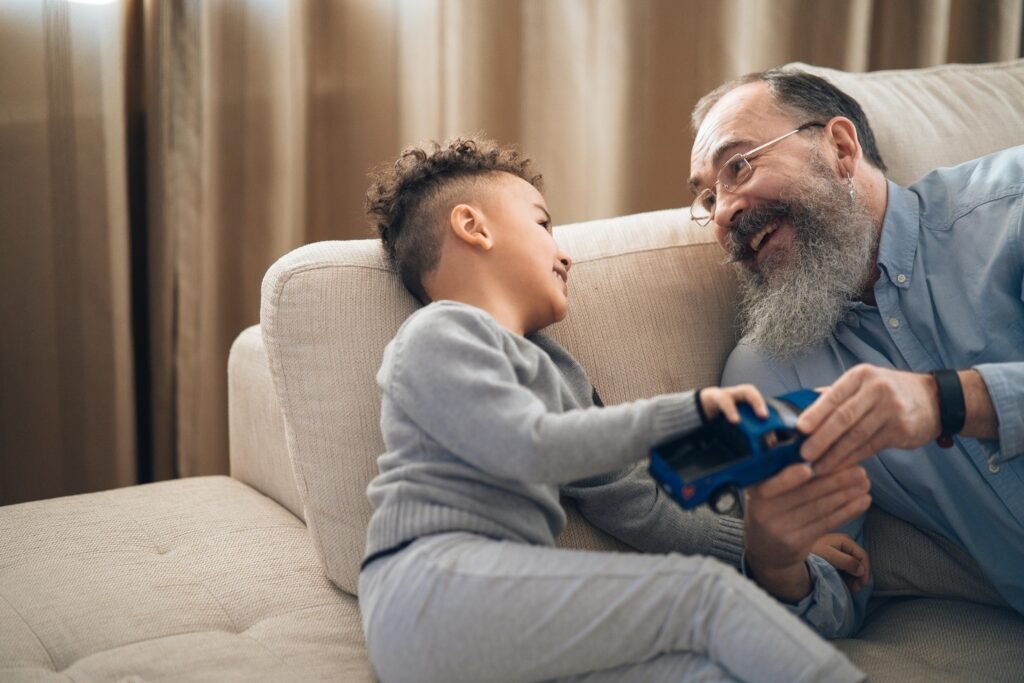Follow us and share.
Mental and Social Exercises to Keep an Active Mind in Older Age
"Strengthening cognitive health in later life is possible through brain-stimulating activities, such as brain games, reading, and social interactions, which also promote lasting emotional well-being."

The Importance of an Active Mind in Old Age
As we age, keeping our mind active becomes a fundamental pillar to preserving our quality of life. cognitive impairment It's a natural process associated with aging, but its impact can be minimized or even prevented with specific activities that stimulate the brain and foster social connections. This article explores mental and social exercises designed to maintain a sharp and healthy mind in old age.
How Aging Affects Cognitive Health
Aging brings with it physiological changes in the brain that can slow thinking processes, memory, and learning ability. Although these changes are common, not all older adults experience significant cognitive decline.
Factors that influence cognitive health:
- Genetics and family predisposition.
- Lifestyle (physical activity, diet and healthy habits).
- Participation in mental and social activities.
The good news is that the brain has a remarkable capacity to adapt, known as neuroplasticity, which means we can strengthen and create new neural connections at any stage of life.
Mental Exercises for Cognitive Agility
- Board Games and Puzzles:
- Activities such as chess, dominoes, crossword puzzles, and Sudoku are excellent for stimulating memory, concentration, and problem-solving skills.
- Benefit: They strengthen short-term memory and improve logic.
- Reading and Writing:
- Reading books, magazines, or interesting articles stimulates the brain, while writing diaries or stories helps organize thoughts and remember events.
- Benefit: Improves comprehension and strengthens neural connections related to language.
- Learn Something New:
- Language, music, painting, or any new skill courses challenge the brain and encourage the growth of new neural connections.
- Benefit: Stimulates creativity and strengthens less-used areas of the brain.
- Digital Applications and Games:
- There are platforms designed for older adults that include adapted cognitive exercises.
- Benefit: They promote attention and problem-solving in a fun and accessible way.

The Importance of Social Connections
Social relationships play a crucial role in preventing cognitive decline. Interacting with other people stimulates areas of the brain related to communication and empathy.
Benefits of social activities:
- They reduce the risk of depression and isolation.
- They promote emotional well-being.
- Improve memory and decision-making skills.
Recommended Social Activities:
- Participation in Groups and Clubs:
- Reading groups, card games, or walking groups are ideal for maintaining an active social network.
- Volunteering:
- Helping in the community provides purpose and fosters meaningful interactions.
- Cultural Events:
- Attending concerts, museums, or community classes stimulates the brain and strengthens social ties.
- Keeping in Touch with Family and Friends:
- Frequent family gatherings or video calls are essential to avoid isolation.
Physical Exercise: An Unexpected Ally
Physical activity not only benefits the body, but also the mind. Exercises such as walking, swimming, or yoga improve cerebral circulation and reduce the risk of neurodegenerative diseases.
Recommendations:
- Dedicate at least 30 minutes a day to moderate physical activities.
- Combine cardiovascular exercises with relaxation practices such as yoga or tai chi.
Additional benefit: Physical exercise releases endorphins, which contribute to a better mood and greater motivation to engage in other mental and social activities.
Tips for Incorporating Healthy Habits
- Establish a Routine: Set aside a specific time each day for mental and social exercise.
- Make it Fun: Choose activities you enjoy to make it easier to maintain the habit.
- Be Constant: The key to getting benefits is to practice regularly.
- Looking for Company: Doing these activities with other people can make them more enriching.
Signs to Seek Professional Support
Although these activities help maintain cognitive health, it is important to be alert for signs of significant decline, such as:
- Frequent loss of recent memory.
- Difficulty completing everyday tasks.
- Unexplained mood swings or disorientation.
In these cases, consult a specialized doctor for an early diagnosis and access to appropriate treatments.
The Power of Staying Active
An active mind is the key to enjoying a full and healthy life in later life. Combining mental exercise, physical activity, and social connections not only improves memory and concentration but also fosters a positive attitude toward aging.
Remember: It's never too late to start. Taking care of your cognitive health is an investment in your future well-being. Take the time to nurture your mind and your relationships today!
